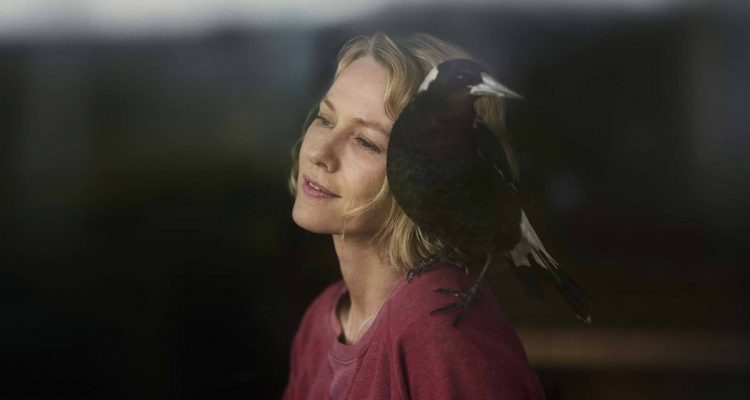“Mom’s not the same person she once was,” narrates adolescent Noah Bloom (Griffin Murray-Johnston) over the coda of “Penguin Bloom.” He continues, “She’s not the person she wanted to be, but for me, she’s so much more than that.” This is ultimately the place at which any movie centered around the experience of living with a disability should arrive, acknowledging that the paralyzing fall endured by Sam Bloom (Naomi Watts) does not mark the end of life as she knew it but rather a reconstitution of it. If only what led up to this moment in the film made Noah at all a credible standard-bearer for such a message.
READ MORE: Toronto International Film Festival 2020 Preview: 15 Films To Watch
“Penguin Bloom” spends most of its runtime focusing on the ways in which Sam’s accident renders her less than. Her family members refer to her abled body as if it is another person entirely who has died. She’s so haunted by images of her mobile and upright past that she takes a pole to destroy the picture frames. The film plays a scene where Sam is left to hear her child throwing up from a bedridden state, where she’s unable to get up and provide assistance, as if disability makes her less capable of providing maternal care. It renders the abled self as a different one altogether, an ideal state to which Sam has lost access. Even her zen moment of contentment, she still imagines herself getting up to stand and walk.
READ MORE: 2020 Fall Film Preview: 40 Most Anticipated Films To Watch
Of course, if one accepts the Kubler Ross stages of grief, it makes sense that Sam would need to grapple with anger and depression to arrive at acceptance. Watts certainly makes that internal struggle compelling without resorting to overwrought physical transformation. But hanging onto her able-bodied self as an aspirational image makes no sense when, as the film’s ending title card informs, the real-life Sam would go on to compete in the World Kayaking Championships and become a two-time World Adaptive Surfing Champion. There’s little sense of her triumph over adversity in “Penguin Bloom,” and it feels bizarre that director Glendyn Ivin would reduce this important element of her biography to a mere footnote. Surely there was some way to incorporate this without turning the film into a hokey sports biopic.
The screenplay by Shaun Grant and Harry Cripps also attributes the development of Sam’s resilience not to any kind of intrinsic strength but rather to the arrival of the titular black-and-white magpie. The wounded, grounded Penguin is both a metaphor for Sam’s condition, as the bird also faces impaired motor skills and also a foil, as it can relearn to fly. While the rest of her family welcomes the opportunity to provide care and recovery to someone else in need of tenderness, she bristles at having a new member of the Bloom household.
Perhaps some of the muddled messaging around disability in “Penguin Bloom” comes from the fact that the bird’s rescuer, Noah, serves as the intermittent narrative shepherd through the film. As an adolescent still finding the vocabulary to function in the adult world, it’s understandable that he might also lack the ability to properly process his mother’s disability. He also suffers silently from bystanders’ guilt since he took Sam up to the ledge from which she plummeted. (Noah also displaces a lot of that discomfort on to Thailand and the country’s lack of safety precautions, a sneering attitude that feels incredibly uncomfortable when raised on multiple occasions.)
Noah’s mindset is not, by nature, problematic. But to have his frame of reference serve as the default, and face little scrutiny, does the entire film and the heroic story a disservice. Further, since Grant and Cripps’ script fails to elevate him to the level of a co-protagonist, he drops in and out of the story. The relationship he shares with Sam never gets explored enough to make the family drama resonate. When the tensions reach a boil in the third act, “Penguin Bloom” feels undercooked.
This does not even account for Sam’s relationship with her husband Cameron (Andrew Lincoln), who gets only the most cursory participation in her journey. The spouse of a person with a disability does not have to disappear into the role of a supportive wallflower, as Felicity Jones’ take on Jane Hawking in “The Theory of Everything” showed. He’s just one missed opportunity in a film full of them. [C-]
Follow along here for all our coverage of the 2020 Toronto International Film Festival.

